SUMMARY
This is AI generated summarization, which may have errors. For context, always refer to the full article.
![[New School] Landlessness is a mental health issue](https://www.rappler.com/tachyon/2022/10/Screen-Shot-2022-10-25-at-4.42.29-PM.png)
In October of last year, I navigated Vista City with alternative media Panaysayon in search of answers about the country’s declining rice production for a Peasant Month documentary. Vista City in Metro Iloilo is a master-planned district consisting of gated communities and commercial establishments. It is a “Villaric” utopia that seeks to foster innovation and jobs at the expense of our farmers.
The dusty highways of the metro and the narrow paths of the rice fields led us to a house across the imposing Vista Mall. We met the family’s matriarch, Nanay Remy, who greeted us with neutral calm.
At first glance, Nanay Remy appeared to have succumbed to the tyranny of hard labor. Her body had yielded to the gravity of life, and her eyes had carried the weight of years spent defending the land which had served as their source of basic needs, and whose pregnant seasons had given birth to their clan. As we set up the equipment, I interviewed her about the land conflict they had been facing, and I got answers that went beyond our original purpose.
Her story centered on her son, who worked in the fields but later committed suicide. The land-grabbing activities of Vista City provided answers as to how and why he did it. It made me realize early in the interview that landlessness is a mental health issue as much as an economic one.
According to the World Health Organization, mental health is a “state of well-being in which the individual realizes his or her own abilities, can cope with the normal stresses of life, can work productively and fruitfully, and is able to make a contribution to his or her community.” When this state of well-being reaches a tipping point, people lose hope and, sometimes, jump over the ledge.
Nanay Remy recalled how, prior to the suicide, Vista City intimidated her son by pointing a gun at him when he was attempting to remove the fence that had barricaded their property. The life-threatening incident caused him stress, depression, and anxiety, from which he never recovered. He was survived by his wife and their young son, who, at the time, was still a baby.
Right then and there I understood how landlessness affects mental health. It can contribute to a wide range of mental health problems. Farmers who are landless experience feelings of hopelessness and helplessness, as well as isolation and loneliness. They are at risk of suicide and self-harm due to a loss of security and stability.
But fear and despair did not not hinder Nanay Remy from fighting land-grabbing after her son died. She asserted, “Indi kami ya maghalin ya. Ngaa? Diri kami eh. Ginabusong pa lang kami, ari na kami nga daan (We will not evacuate. Why? We live here. We have been here since we were in our mother’s womb).”
Land-grabbing, specifically illegal land use conversion, occurs when agricultural land in an urban area is converted without due process by local governments, with the aid of the Department of Agrarian Reform (DAR) and the National Irrigation Authority (NIA). Under the power granted by the Local Government Code, they unjustly reclassify lands as zones for agriculture, industry, residences, and commerce and take them over before conversion orders are issued.
When I asked Nanay Remy why they kept resisting illegal land use conversion despite the stature of their opponents, she replied, “Mauma pa na tani namon mung. Makabulig pa na samon kon ano ang produkto namon na da (We can still cultivate it. The products we can get there can still help us).”
In other cases, local governments allow agricultural, agro-industrial, and fishing development zones to be turned into residential and commercial spaces, despite the fact that our Constitution protects them as non-convertible areas. They use their positions to subvert the law and exploit farmers, the majority of whom are still unaware of the technicalities of the situation.
This proves that landlessness as a mental health issue is caused not only by one’s personal circumstances, but also, and more importantly, by systemic pathologies. The Rice Liberalization Law is another example. It destabilized the prices of rice across the country and put our farmers in jeopardy. It forced them to peddle their lands to big corporations, which acted like vultures anticipating carcasses.
Nanay Remy concluded our interview by urging land-grabbers to halt their unlawful activities because the poor will suffer in the end. Rather than converting people’s agricultural lands and evicting them, they should be provided with housing. She urged the remaining farmers not to give up their lands, either.
Rewatching the documentary now, with a new perspective on landlessness, taught me that land is life for our farmers. It is their very existence, and thus is linked to their mental health.
Moreover, landlessness affects us consumers, whether or not we are conscious of it. When agricultural land shrinks to give way to subdivisions and malls, production of crops like rice decreases, and our country is prompted to import. As a result, we bear the great impact of rising market prices.
Today, overwhelming values of basic commodities, particularly for rice, exacerbated by scant employment and inaccessible social services, are chipping away at our mental health. As illegal land use conversion sweeps Metro Iloilo and the country, the current government’s promise of P20 per kilo of rice remains but an election brouhaha fertilized by deception.
Nanay Remy’s son was one of thousands of farmers in the country whose land, livelihood, and life were robbed from them. No matter how hard the rest of us distance ourselves from that reality, we are already experiencing it, albeit in a different form and magnitude. So, what do we do?
Here’s what: Condemn land-grabbing. Hold the government accountable for allowing it to happen. Stop the Villaric utopia of Vista City from depleting our resources, the head developer of which, Manny Villar, is now the country’s second richest billionaire. – Rappler.com
Phillippe Angelo Hiñosa is a Sociology student at the University of the Philippines Visayas. He writes about family, education, politics, and society based on his personal life. You can reach him at pahinosa@gmail.com.
Add a comment
How does this make you feel?
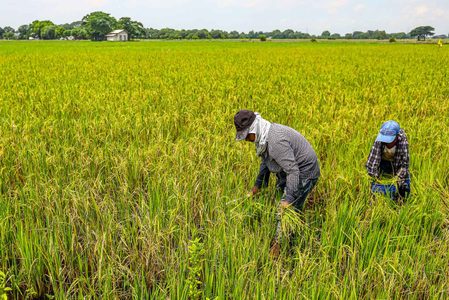

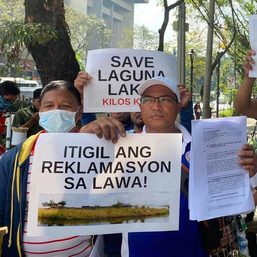
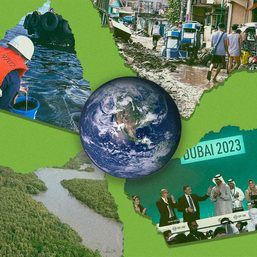
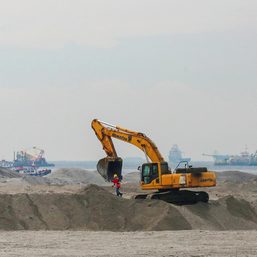
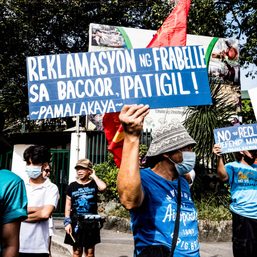
There are no comments yet. Add your comment to start the conversation.